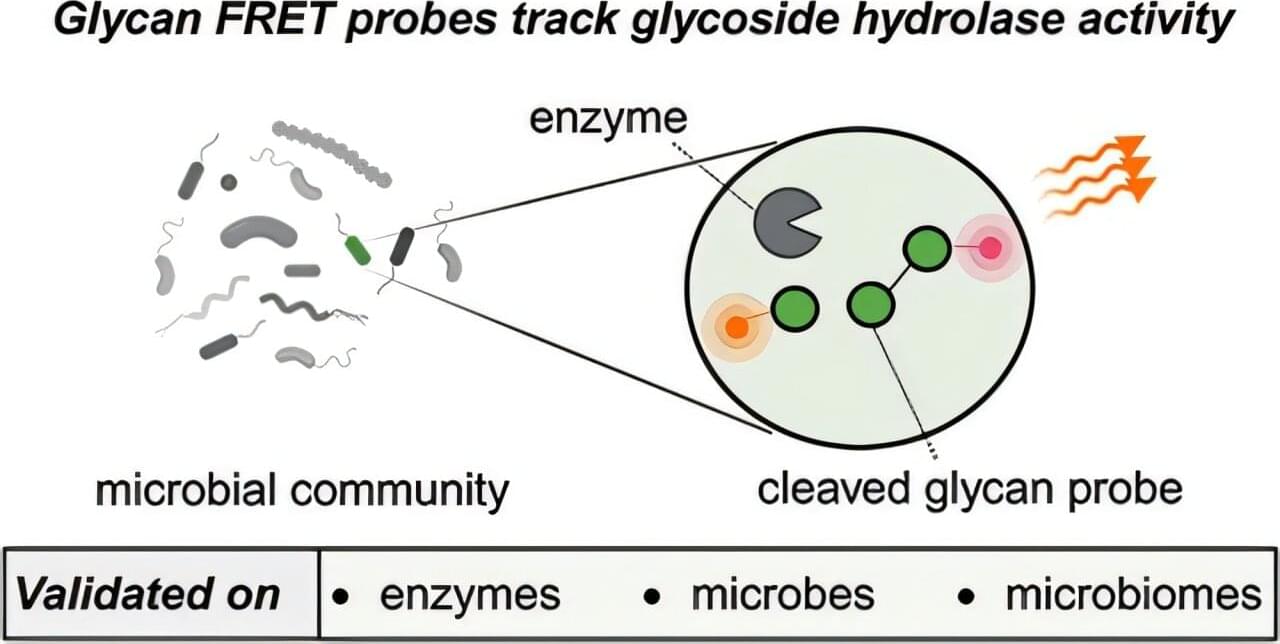A team of chemists, microbiologists and ecologists has designed a molecular probe (a molecule designed to detect proteins or DNA inside an organism, for example) that lights up when a sugar is consumed.
In the Journal of the American Chemical Society, they now describe how the probe helps researchers study the microscopic tug-of-war between algae and microbial degraders in the ocean.
“Sugars are ubiquitous in marine ecosystems, yet it’s still unclear whether or how microbes can degrade them all,” says Jan-Hendrik Hehemann from the Max Planck Institute for Marine Microbiology and the MARUM—Center for Marine Environmental Sciences, both located in Bremen.
